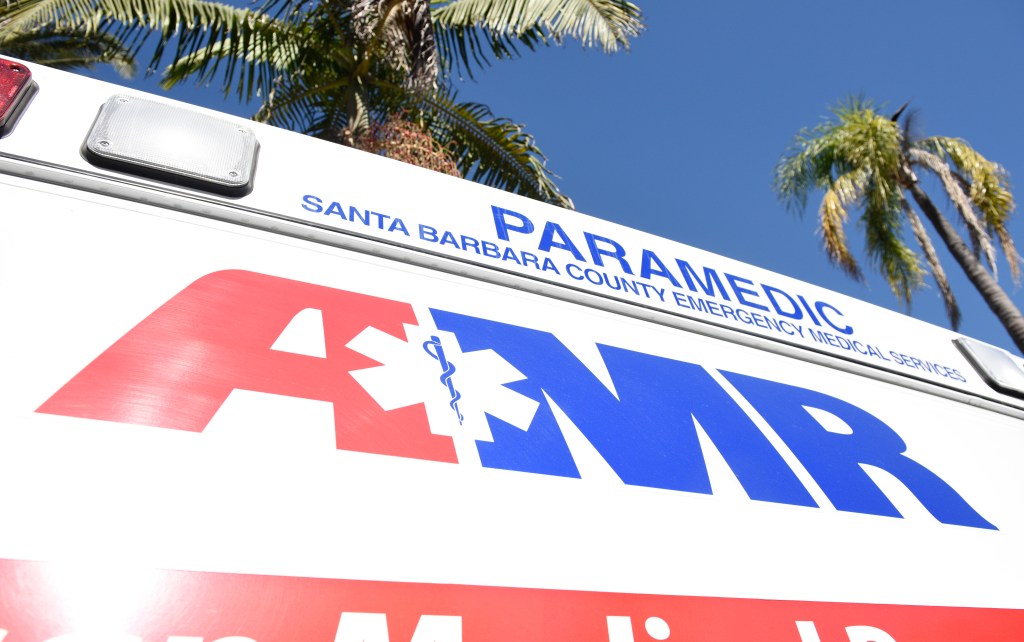Up against one another at the county supervisors hearing this week were the proverbial immovable object and the unstoppable force. In the end, it wasn’t even close. The immovable object — in this case, the county’s exclusive ambulance contract, held without one competitive bid for 40 years by American Medical Response (AMR) — got budged. AMR is by no means out the door, but the supervisors voted unanimously to open up the contract, worth $20 million a year, to competitive bidding. To accommodate that process, the supervisors extended AMR’s contract, which expires at year’s end, by three years.
Supervisor Joan Hartmann said it was the hardest decision she’s made in office. Supervisor Steve Lavagnino lamented the absence of white and black hats in the crowd to help him distinguish the good guys from the bad. Everyone in this fight, he noted, were good guys.
On one side of the room were the county’s public health chief, its emergency planning experts, and a host of emergency-room doctors. They all testified that the current system was a model of efficiency, its cardiac arrest care the envy of the world. They warned of high failure rates by other agencies that sought to implement meaningful reforms via the bidding process. Any changes — and they had 23 specific suggestions — should be made simply by renegotiating the existing contract, they argued.
Sitting on the other side of the room, and arguing the other side of the issue, was a historic coalition of every single fire chief in Santa Barbara County and every single firefighters’ union. The firefighter unions have long wanted to submit a bid for ambulance services, and in recent years, older chiefs — more resistant to the idea — have retired and been replaced by newer chiefs, several of whom come from agencies that operated ambulance services. AMR’s reputation for high-quality cardiac care, suggested Santa Barbara City Fire Chief Eric Nickel, was due in significant measure to the firefighters who show up as a matter of course to most emergency calls for service.
Supervisor Peter Adam led the charge for change. “I don’t see how in the heck we go 40 years without a bid,” he demanded. “It would be irresponsible of me as an elected official to not allow a bid.”
Supervisor Das Williams, who frequently finds himself at odds with Adam, concurred. He praised AMR for the high quality of service it provided but said the fundamental package the company provided needed to be changed. The cost per ride, about $2,500, was prohibitively high for too many in the community, he objected. “When I grew up, calling an ambulance was tantamount to bankruptcy,” Williams said. When he needed sudden medical attention, Williams knew better than to call AMR. “You walk there, you drive there, you take a bus,” he said.
Supervisor Hartmann praised AMR but also described it as a “Cadillac system,” meaning the level of care and expertise provided — and charged for — often exceeded the actual need.
AMR executive Dave Schierman responded to aspersions cast by a few union speakers, who suggested local dollars were going into the pockets of out-of-state corporations. He noted he’s lived in Santa Barbara long enough to have met his wife and raised their two children here. Schierman said AMR collects only 25 percent of what it actually bills. Government payment plans — like Medi-Cal and Medicare — cap reimbursement well below the billing rate, as do many private insurance carriers. Many customers simply don’t pay; those that do are charged more.
Schierman said that the more formalized bidding process discourages the level of innovation and flexibility needed to make changes more easily allowed by renegotiating the current contract, as did a host of county administrators. But once the bidding process is underway, AMR will be able to submit a competitive bid. In communities where firefighting agencies have gotten such contracts, he noted, they often have subcontracted with AMR to provide the actual service.

